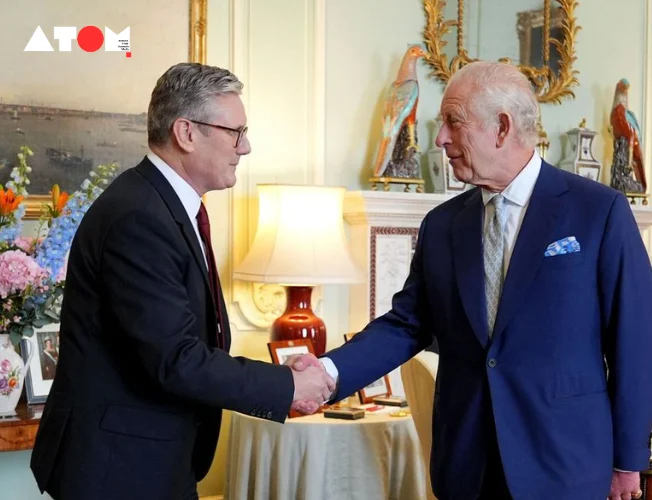In a dramatic turn of events, the UK’s Labour Party has emerged victorious in the 2024 general election, securing a commanding majority in the House of Commons. This significant shift in political power marks the end of a 14-year Conservative government, as Rishi Sunak steps down from his role as Prime Minister.
Keir Starmer’s Labour Party achieved a landslide victory, crossing the crucial 326-seat threshold needed for a working majority in Parliament. With 412 seats secured out of 650, Labour’s triumph signifies a resounding mandate from the British public. Starmer is set to lead the country as the new Prime Minister, ushering in a new era of centre-left governance.
Rishi Sunak’s Concession and Apology
The scale of the Conservative defeat became evident as multiple cabinet members lost their seats. In a heartfelt farewell speech, Rishi Sunak acknowledged the public’s disappointment and took responsibility for the loss. “I have heard your anger, your disappointment, and I take responsibility for this loss,” Sunak stated. He further expressed his regret, saying, “I am sorry.”
Sunak’s departure from Downing Street was marked by an apology to the public before he tendered his resignation to King Charles III. The former Prime Minister admitted that despite his efforts, the voters had sent a clear message demanding change.
Economic and Social Challenges Ahead
There are major social and economic difficulties facing the nation as the new Labour government takes office. The tax burden in Britain is expected to rise to its greatest level since the Second World War, and the country’s net debt is almost equal to its yearly economic production. Living conditions have fallen, and the continuous strikes are severely taxing public services, especially the National Health Service (NHS).
Market Reactions and International Support
After Labour won the election, UK stocks and the value of the pound rose. Investor confidence regarding possible economic stability and reduced inflation under the new government was reflected in the rise in the benchmark FTSE 100 index of the London stock market. Prime Minister Keir Starmer confronts a difficult task in tackling tight public finances, a stretched NHS, and slow economic development despite the good reaction from the market.
Leaders from around the world have backed Starmer. Olaf Scholz, the chancellor of Germany, praised him and expressed belief in his capacity to lead Germany as a “very good, very successful” prime minister. Volodymyr Zelensky, the president of Ukraine, also expressed his gratitude and emphasized the strong partnership that exists between the UK and Ukraine.
Rishi Sunak’s Final Address
In his final address as Prime Minister outside Number 10 Downing Street, Rishi Sunak reflected on his tenure and the electoral outcome. He emphasized that the judgement of the public is paramount and accepted responsibility for the Conservative Party’s crushing defeat. “I’m sorry. I have given this job my all, but you have sent a clear message,” Sunak stated, acknowledging the voters’ desire for a change in government.
Key Takeaways from the Election
- Labour Landslide: Labour’s victory, although not unprecedented, represents a decisive shift in British politics, bringing an end to the long-standing Conservative rule.
- Hard-Right Breakthrough: The anti-immigration Reform UK, led by Nigel Farage, secured significant voter support, becoming the third-largest party in terms of vote share.
- Conservative Catastrophe: The Conservative Party faced a dramatic downfall, retaining only around 120 seats, a stark contrast to their landslide victory five years ago.
- Scottish Nationalists in Crisis: The Scottish National Party (SNP) experienced a disappointing night, with key figures admitting to a poor performance.
- Liberal Democrats’ Comeback: The pro-EU Liberal Democrats made a surprising return as a major force in Westminster, overcoming their previous dismal performance in 2019.
Future Prospects for the Labour Government
The new Labour government, led by Keir Starmer, has pledged to focus on economic growth and investment in key areas such as health and education. However, the administration will need to balance these ambitions with the necessity of managing strained state finances, exacerbated by the economic impacts of the COVID-19 pandemic and the Ukraine crisis.
As the UK transitions to Labour leadership, the nation anticipates significant policy shifts and renewed efforts to address pressing economic and social issues. The coming months will reveal how effectively the new government can navigate these challenges and fulfill its promises to the electorate.
Read more: Marketing News, Advertising News, PR and Finance News, Digital News





